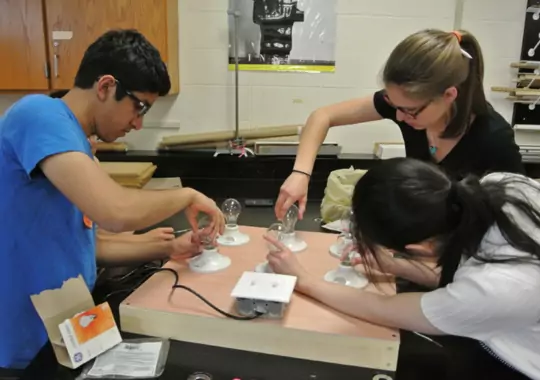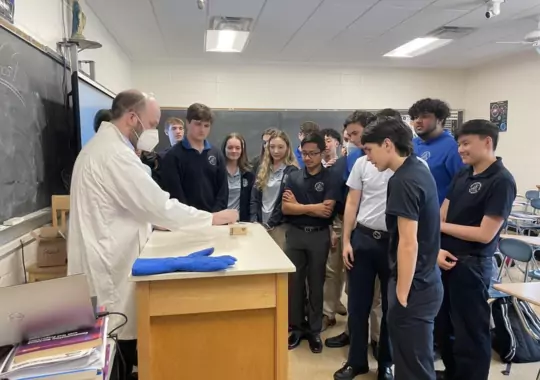Looking to conquer the challenges of study physics? This video offers 11 proven tips to make learning physics easier and more effective. Whether you're struggling with understanding concepts or solving numerical problems, these tips are designed to help you succeed. Let's dive in and explore how you can enhance your physics study routine!
As Amazon affiliates we may earn a commission if you purchase a product at no cost to you.
Make consistent effort
To excel in physics, it's essential to establish a consistent study routine. Begin by thoroughly understanding the theoretical concepts before diving into numerical problems. This foundational understanding will serve as a solid base for tackling more complex physics problems later on. Consistency is key to mastering physics, as regular study sessions help reinforce your knowledge and build a strong conceptual framework.
Visualize physics
Physics is often perceived as abstract and challenging, but visualizing concepts can make them more tangible and easier to grasp. When studying physics, try to visualize how the principles apply in real-life scenarios. For example, when learning about motion, imagine the movement of objects in different situations. This visualization technique can enhance your understanding by providing a practical context for theoretical concepts.

Absorb tutorial content in small chunks
Physics can be overwhelming, so it's crucial to break down the material into manageable segments. Instead of trying to absorb everything at once, take your time to digest the information. Pause after each segment to reflect on what you've learned, visualize how it applies, and ponder over any challenging concepts. This approach allows for deeper understanding and retention of the material.
Understand the derivation of important equations
Physics is built on a foundation of Equations of Mathematical Physics, and understanding their derivation can provide valuable insights. Instead of just memorizing equations, take the time to understand where they come from and how they are derived. This understanding can help you solve more complex problems by giving you a deeper insight into the underlying principles.
Make neat diagrams and deconstruct the problem
Visual aids such as diagrams can be invaluable when solving physics problems. Create clear and organized diagrams that represent the problem and include all relevant information. Deconstruct the problem by breaking it down into smaller, more manageable parts. This approach can help you identify key concepts, relationships, and variables, making the problem-solving process more straightforward and efficient.
Be disciplined when solving numerical problems
Numerical problems in physics can be complex, requiring a systematic approach for accurate solutions. To tackle these problems effectively, it's crucial to maintain discipline in your problem-solving process. Write down each step clearly and methodically, ensuring that you understand the reasoning behind each calculation. Avoid the temptation to rush through problems, as this can lead to errors. By taking your time and following a structured approach, you'll be better equipped to solve even the most challenging numerical problems in physics.
Get a basic understanding of math
Mathematics forms the foundation of physics, serving as the language that describes the physical world. To excel in physics, it's essential to have a solid grasp of fundamental mathematical concepts, including calculus, algebra, trigonometry, and geometry. Understanding these branches of math not only helps you solve physics problems but also enables you to appreciate the underlying principles and relationships in physics. A strong mathematical foundation can make complex physics concepts more accessible and increase your overall proficiency in the subject.
Find the best way of solving a problem
In physics, there are often multiple ways to approach a problem. To become proficient, explore different methods and techniques to find the most efficient solution. Don't settle for the first approach that comes to mind; instead, consider alternative strategies that might simplify the problem or lead to a more elegant solution. By experimenting with different approaches, you'll not only improve your problem-solving skills but also develop a deeper understanding of the underlying physics concepts. We recommend you to check out the best books for physics on Amazon:
The Biggest Ideas in the Universe.
Quantum Physics for Beginners.
Seven Brief Lessons on Physics .
Do not leave a problem with doubt
It's common to encounter doubts or uncertainties when solving physics problems. Instead of brushing these aside, take the time to address them and seek complete conceptual clarity. This may involve revisiting the relevant theory, consulting additional resources, or discussing the problem with peers or instructors. By resolving any doubts before moving on, you'll ensure a thorough understanding of the material and avoid misconceptions that could hinder your progress in physics.

Revisit the chapter after solving numericals
After completing a set of numerical problems, take the time to revisit the corresponding chapter in your physics textbook. Rereading the chapter will reinforce the concepts you've just practiced and help solidify your understanding. Pay attention to any areas where you struggled during the problem-solving process and use this opportunity to clarify any remaining doubts. By revisiting the chapter after solving numericals, you'll deepen your comprehension and retention of the material.
Practice
Practice is essential for mastering physics. Regularly solving problems not only improves your problem-solving skills but also helps you internalize key concepts and principles. As you practice, aim to tackle problems of varying difficulty levels to challenge yourself and expand your understanding. Additionally, seek out new problems that require you to apply the concepts in different contexts, as this will enhance your ability to apply physics principles in real-world scenarios. By dedicating time to practice regularly, you'll build confidence in your abilities and develop a strong foundation in physics.
Recommended Article

Frequently Asked Questions FAQs
Do I need to be a math genius to study physics?
Not at all! While mathematics is essential in physics, you don't need to be a prodigy. Start with basic math skills and gradually build your mathematical prowess as you progress in your studies.
Can I study physics without a formal degree?
Absolutely! Physics is a subject you can explore independently or through informal courses. Many successful physicists began their journey outside of formal education.
Conclusion
This video underscores the importance of practice in mastering physics. By dedicating time to regular practice, you can enhance your problem-solving skills, deepen your understanding of key concepts, and build confidence in your abilities. For more valuable study physics tips and insights, be sure to subscribe to the channel. Start practicing today and take your physics knowledge to new heights!










